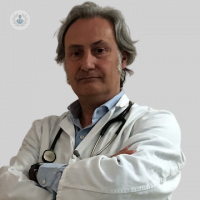Relationship between sports and heart disease in younger
Written by:In Spain many children and adolescents who perform sporting activities. In fact, the working group "Physical Activity" of the Spanish Association of Pediatrics recommends performing moderate physical activity for at least 60 minutes a day three days a week.
 Since June 2013, a law was established to protect the health of athletes and the fight against doping in sport. Thus, the governing body of the sport in our country, the Spanish Agency for Health Protection in Sport progressively determine the obligation to conduct medical checkups before getting the federal license for those sports in which it is considered. This measure will not affect the practice of not federated sport and carry out a large number of children and adolescents.
Since June 2013, a law was established to protect the health of athletes and the fight against doping in sport. Thus, the governing body of the sport in our country, the Spanish Agency for Health Protection in Sport progressively determine the obligation to conduct medical checkups before getting the federal license for those sports in which it is considered. This measure will not affect the practice of not federated sport and carry out a large number of children and adolescents.
Sudden cardiac death
Specialists in Pediatric Cardiology consider sudden cardiac death that happens during exercise or one hour following completion. Also, it notes that most cardiovascular events occur during the practice of sport at recreational level. In any case, cardiovascular contingencies associated with the sport are fortunately rare in children and are associated with cardiomyopathies and congenital anomalies of coronary arteries, Channelopathies and pre-excitation syndromes, valvular, aortic dissection, myocarditis and commotio cordis.Thus, it seems reasonable to establish a protocol control predeportivo to detect potentially lethal cardiovascular diseases. In this regard, in February 2015 the Spanish Society of Pediatric Cardiology and Congenital Heart Disease (SECPyCC), the Higher Sports Council and the Spanish Agency for Health Protection in Sport have developed a previous "Clinical Guide Cardiovascular Evaluation to pediatric sports. "
Preventive cardiovascular assessment
By way of prevention, pediatric cardiology specialists advise performing a prior cardiovascular evaluation to sports in children and adolescents. This evaluation includes a complete medical history, including a history of heart murmur, high blood pressure, taking medication long way in the last two years, unexplained seizures or other diseases that the child or his family perceived as a potential danger. In addition, questions about family history of heart disease, cardiomyopathies, arrhythmias or sudden death before 50 years of age.Another data to consider are the child's symptoms: if has complained of chest pain in stress situations, the presence of syncope or near syncope or heart feel very fast, palpitations or irregular heartbeat. Also we ask if the patient fatigue usually before the rest of his teammates to play sports.The next step is to perform a complete physical examination including anthropometry with weight, height and body mass index, blood pressure taking, cardiopulmonary auscultation and palpation of peripheral pulses. We pay special attention to the presence of chest deformities such as pectus excavatum or pectus carinatum and the search for stigmata of Marfan syndrome.Always we carry out a 12-lead ECG, allowing us a systematic reading of it. Here we can notice small frequent alterations in children that require no limitation to practice sport, but also more severe alterations, whose assessment may require conducting additional examinations.
Advances in preventive control
To carry out a more thorough examination, Dr. Centeno Malfaz incorporated performing 2D color Doppler echocardiography. This test allows an assessment of cardiac anatomy and the way the heart is working. In this way we make a profound cardiovascular observation, leaving the application of other tests such as stress testing, holter-ECG or cardiac MRI for selected patients presenting alterations in this first evaluation.Finally, remember that recommend repeat the evaluation every two years when the results suggest the absence of cardiovascular disease. Otherwise, they may be necessary revisions more frequently.


